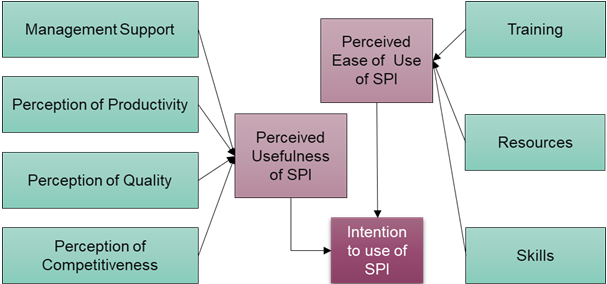PhD. Candidate: Suna Durmuş
Program: Information Systems
Date: 25.01.2023 / 14:00
Place: B-116
Abstract: The software industry is playing a significant role in development of economies all over the world. It is mainly made up of small and medium software enterprises (SMEs). These companies aim to benefit from Software Process Improvements (SPI) to increase product quality and productivity in a competitive environment. Several SPI models and frameworks have been developed to improve software quality in SMEs. As SPI require organizational change and adaptation to new tools, techniques and work practices; organizations have to handle with several challenges emerged from the change. The objective of this study is to identify the factors that influence the success and the acceptance of SPI models and/or standards used in SMEs. Moreover, it is aimed to analyze the attitude of SME employees towards the SPI models and /or standards in Turkey. In this context, the SPI acceptance model was developed based on an established behavioral theory for SMEs. The mixed methods research study was conducted to validate the model. First of all, a pilot study was performed to evaluate the construct validity and reliability of the model. Then, the quantitative data were collected from 384 participants with a survey, and it was followed by a qualitative stage was completed by interviews with 10 SME employees. Quantitative data were analyzed with reliability test, exploratory factor analysis, confirmatory factor analysis and structural equation modeling. Content analysis was performed for qualitative data. The results of the study revealed that management support, perception of productivity, perception of quality, perception of competitiveness, skills, resources and training are the key factors that affect the acceptance of the SPI studies in SMEs. Moreover, the general tendency of SMEs towards SPI practices is positive in Turkey.
